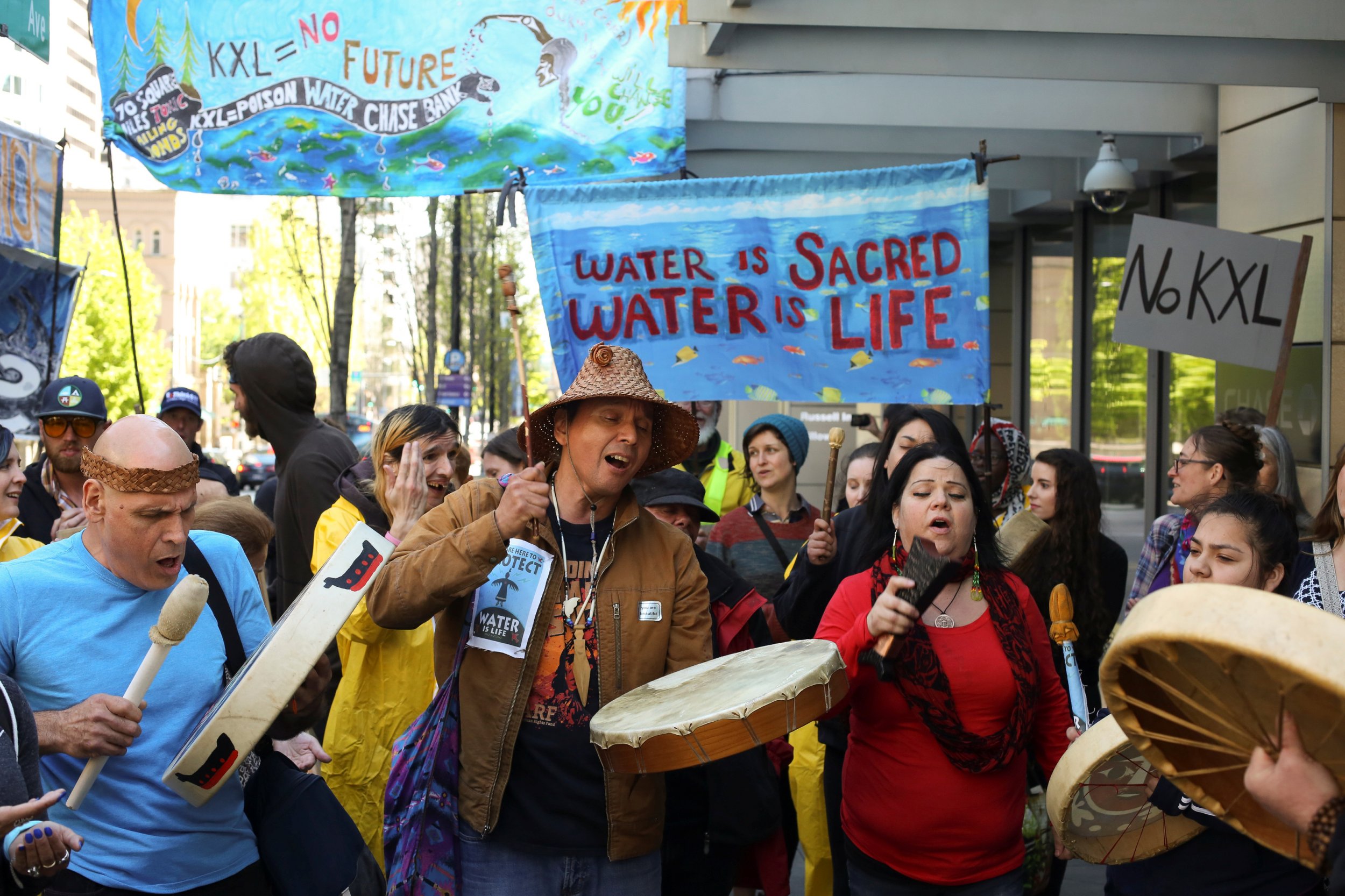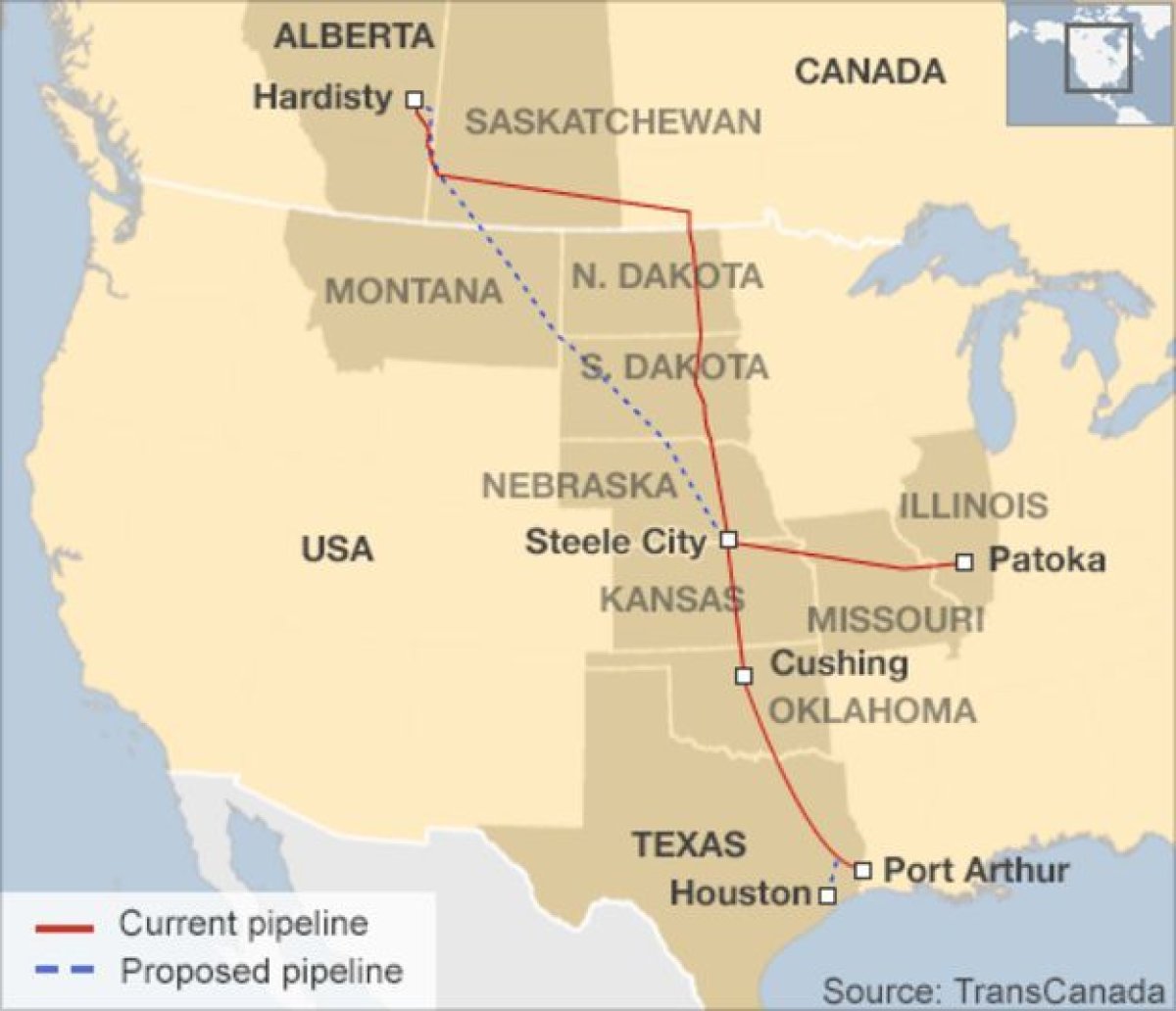
Nebraska's Public Service Commission approved the Keystone XL pipeline on Monday, clearing the way for the oil artery. Here's everything you need to know about the controversial project.
What is it?
The Keystone XL is a 1,179 mile oil pipeline running from Canada's oil sands to Nebraska. It will will carry 830,000 barrels of oil each day, just a drop in the bucket of America's daily oil use, which is estimated to be 19 million barrels per day. The project will connect to the already existing Keystone Pipeline, a system that has been piping oil to Texas since 2010 and is the fourth and final piece of the larger keystone project.
Because the route is more direct than the original Keystone, which juts out over Saskatchewan before heading south, the oil would get to the Gulf of Mexico quicker and cheaper, enabling it to be exported sooner.

What does Nebraska's approval mean?
The pipeline needs to be buried, which workers can't do unless they have the go-ahead from property owners. Monday's vote gives the state permission to seize the land by eminent domain and bury the pipe even if the landowners aren't okay with it.
Who wants to build it?
Canadian energy company TransCanada, which has several oil and gas pipelines across Canada and the United States, partnered with oil shippers to privately finance the project.
The company reportedly lobbied state politicians and Indigenous community groups to approve the pipeline for years, allying itself with "dark money" pro-oil groups that funneled cash into creating campaigns for the $8 billion project.
Still, Barack Obama rejected the Keystone XL in 2015 after a six-year review from the State Department, citing growing concerns about climate change, which scientists say is exacerbated by the burning of fossil fuels.
But President Donald Trump swiftly approved the pipeline just four days into his term, signing an executive order for the project to move forward.
The Keystone pipeline will create 20,000 jobs and lower gas prices. But Obama says No. Dumb.
— Donald J. Trump (@realDonaldTrump) December 27, 2011
Supporters of the Keystone XL claim it will help decrease America's dependency on oil from the Middle East and create tens of thousands of jobs.
Then why are people against it?
Opponents fear the pipeline will rupture and pollute the water supply with thousands of gallons of oil. The type of oil that will pulse through the pipeline, diluted bitumen, is so thick that leaks can be hard to detect, making it more difficult to stop them before they cause damage.
Bitumen is also one of the dirtiest oils in the world and water is needed to separate its tarry component from the sand in which it is found, a practice that can deplete and pollute freshwater, a resource on which locals, including Indigenous tribes, rely.
Critics also worried the pipeline would endanger Nebraska's Sandhills region, a scenic swath of prairies that spans more than a quarter of the state.
In the beautiful Nebraska Sandhills! Never been to this place in my 11 + years in the state. #TheGoodLife pic.twitter.com/S85eCC0RGF
— Nick Starling (@NickStarlingTV) October 25, 2017
The Nebraska Public Service Commission approved the plan on Monday under the condition the pipeline would be buried away from the Sandhills, but one opponent on the five-person panel argued it didn't matter where it goes because it's going to burst and ruin somewhere else someday.
"All human-made infrastructure degrades and fails over time," wrote cattle rancher Mary Rhoades in her dissent. "No infrastructure ever designed has lasted for eternity and there is no reason to believe this pipeline will be an exception."
Finally, opponents say spending billions of dollars on the pipeline also signals a commitment to oil when countries should be finding other ways to generate energy.
Wasn't there just a big spill?
Yes, from another portion of the Keystone Pipeline in South Dakota. Roughly 210,000 gallons of oil spilled out of the pipeline onto farmland, prompting TransCanada to shut the segment on Thursday. It's still too early to tell if the oil contaminated the groundwater since crews need to wait a few days before they can get in and excavate it.
Locals are worried the leak — which happened in the same county as the Lake Traverse Reservation — polluted the aquifer on the adjacent Sioux property.
Image of Amherst incident taken earlier today by aerial patrol as part of our initial response. For more updates, visit https://t.co/8yWI1Oq2EM pic.twitter.com/uRNtYUdVjL
— TransCanada (@TransCanada) November 16, 2017
So when will it be built?
It might actually not be built at all. TransCanada has already spent $3 billion on steel piping, land rights, and lobbying and will have to spend billions more to complete it, a task that will take roughly three years. To make matters worse, the oil producers and refiners that once backed the project reportedly aren't interested anymore, so TransCanada will have to decide whether the pipeline is worth the cash.
Canadian Prime Minister Justin Trudeau could be pressured into regulating the Alberta tar sands where the oil originates as fears about climate change increase, devaluing the project in years to come.
And TransCanada had already received approvals to bury the pipeline from most of the homeowners it will sit under, but now that the route has been changed, the company will need to go back and get the greenlight from different residents.
Uncommon Knowledge
Newsweek is committed to challenging conventional wisdom and finding connections in the search for common ground.
Newsweek is committed to challenging conventional wisdom and finding connections in the search for common ground.
About the writer
Lauren is a breaking news reporter. Before Newsweek, she worked as a reporter for The Brooklyn Paper covering local news and ... Read more
To read how Newsweek uses AI as a newsroom tool, Click here.








